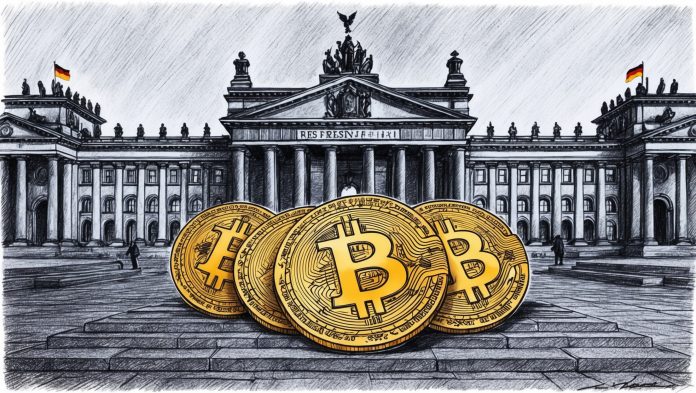Germany’s decision to sell nearly 50,000 Bitcoin earlier this year at an average price of $53,000 per coin has drawn sharp attention, especially as Bitcoin has since skyrocketed to new all-time highs of $93,434. This move left Germany potentially missing out on an estimated $2 billion, a stark reminder of the high stakes involved in cryptocurrency management.
In July, German authorities sold 49,858 Bitcoin, generating approximately $2.8 billion in revenue. However, with Bitcoin’s recent price surge, those assets could now be worth around $4.57 billion—highlighting the substantial difference in potential value.
The sale stemmed from legal obligations under German law, which requires the liquidation of seized assets if their market value fluctuates by more than 10%. This rule aims to minimize the risks associated with market volatility, but in this case, it also limited Germany’s ability to capitalize on Bitcoin’s meteoric rise.
The Bitcoin stockpile in question was confiscated from Movie2k.to, a movie piracy website. In January, German police secured approximately 50,000 BTC in what authorities described as the most significant cryptocurrency seizure in the nation’s history.
To comply with legal requirements, the liquidation began in mid-June, with over 10,000 Bitcoin sold initially. Transactions were carefully distributed across multiple platforms, including Bitstamp, Kraken, and Coinbase, to minimize market disruption. However, the timing of these sales—amid fluctuating market conditions—meant Germany missed the opportunity to benefit from Bitcoin’s subsequent rally.
While Germany’s decision was rooted in legal and financial prudence, the Bitcoin market has since been propelled by several factors, including optimism following Donald Trump’s recent election victory and speculation about favorable regulatory shifts in the United States. However, experts argue that the real driver of Bitcoin’s price surge lies in its unique supply dynamics.
Bitcoin’s halving event in April reduced block rewards from 6.25 BTC to 3.125 BTC, significantly slowing the creation of new coins. This supply shock tightened availability and created upward pressure on prices—a phenomenon observed after previous halving events.
Jesse Myers, co-founder of Onramp Bitcoin, pointed out that the halving’s impact is a critical element of Bitcoin’s current rally. “The main story is that we are 6+ months post-halving,” Myers explained, emphasizing the reduced supply as a key driver behind the surge.
Germany’s sale of its Bitcoin holdings not only raises questions about the timing of such decisions but also highlights broader strategic implications. In the wake of Bitcoin’s price rise, discussions have emerged about its potential role as a strategic reserve asset.
Joana Cotar, a German parliament member, expressed concerns over the possibility of the U.S. adopting Bitcoin in this capacity. “If the US buys Bitcoin as a strategic reserve, then all European countries will get FOMO,” Cotar remarked, pointing to the potential for a domino effect among nations.
Meanwhile, corporate players like MicroStrategy have doubled down on their Bitcoin investments. Between late October and early November, MicroStrategy acquired an additional 27,200 BTC for $2.03 billion at an average price of $74,463 per coin. Moves like these underscore growing confidence in Bitcoin as a long-term store of value and a hedge against traditional financial risks.
Germany’s decision to sell its Bitcoin holdings offers a case study in navigating the complexities of cryptocurrency management. While adherence to legal frameworks is essential, this situation highlights the importance of balancing regulatory compliance with strategic foresight in volatile markets.
The case also underscores the need for governments to develop flexible policies that account for the unique characteristics of digital assets. As Bitcoin continues to gain traction, understanding its market dynamics will be crucial for institutions looking to optimize their approaches to cryptocurrency.
Germany’s $2 billion “miss” in Bitcoin serves as a cautionary tale for nations and institutions managing cryptocurrency holdings. With the right timing and strategy, these assets can represent not just financial opportunities but also tools for economic resilience. As Bitcoin’s role on the global stage continues to evolve, lessons from Germany’s experience will likely inform future approaches to digital asset management.















